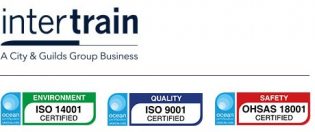The Value of Project Management
Project management is a cornerstone of business success. It provides a structured approach to turning ideas into results—helping organisations deliver products, services, and improvements that truly add value. At its core, project management is the practice of initiating, planning, executing, controlling, and completing work through a team, all while navigating constraints such as time, budget, and scope. Done well, it ensures that objectives are met efficiently, risks are managed proactively, and resources are used wisely.
Leadership Skills: Striving for a Successful Business
A project is defined as a temporary undertaking designed to produce a unique outcome—whether it’s a new product, an improved service, or a critical business change. Unlike routine operations, projects have clear start and end points, and they are often created to solve specific problems or take advantage of new opportunities. Success relies not only on good processes, but also on strong leadership, clear communication, and the ability to adapt.
In today’s fast-moving business environment, effective project management is also a reflection of strong leadership capability. Managers and team leaders are increasingly expected to take charge of complex initiatives, collaborate across departments, and guide their teams through uncertainty. These are skills that can be developed—and refined—through targeted management training. With the right knowledge and tools, managers at every level can lead with greater confidence and deliver better outcomes, both for their projects and the wider business.
Top Tips for Effective Project Management
1. Build a Strong Project Framework
Establishing a solid project structure is essential. Encourage your team to share ideas, challenge existing processes, and explore new approaches. This kind of engagement not only fosters innovation but also boosts motivation and productivity. When team members feel empowered to contribute meaningfully, they’re more likely to remain committed and perform at their best—ultimately strengthening the project and the wider organisation.
2. Choose the Right Project
Not every idea should be pursued. Use tools such as cost-benefit analysis and strategic alignment assessments to evaluate potential projects. This helps ensure that the project you undertake offers genuine added value and supports your organisation’s overarching goals. Prioritising the right projects helps optimise resources and maximise business impact.
3. Plan the Entire Project Thoroughly
Start by defining the project scope clearly and accurately. Once the scope is set, you can communicate goals effectively, set expectations, and manage change requests more easily. A well-defined scope reduces ambiguity, helps control costs, and ensures that any changes introduced during the project are necessary and justifiable.
4. Assemble the Right Team
Identify the specific skills your project requires, then bring together a team that meets those needs. Be honest about any skill gaps and take steps to address them—whether through training, support, or recruitment. Building a capable, well-rounded team is fundamental to project success.
5. Bring in Specialist Expertise When Needed
Recognise that expertise in one area doesn’t automatically translate to others, even if they seem related. Successful projects often require input from specialists, and it’s important to collaborate with the right experts—whether internal or external. Hiring external consultants or contractors may seem like an added cost, but in many cases, it is more cost-effective than risking mistakes or inefficiencies due to a lack of knowledge.
6. Cover All Critical Areas
Comprehensive project management means ensuring that all key knowledge areas are addressed. These include:
- Time and cost management
- Quality control
- Risk assessment and mitigation
- Human resources
- Procurement and supplier management
- Communication planning
- Integration and coordination of tasks
- Project life cycle management (including stages, gates, and reviews)
- Feedback and continuous improvement with your team
Neglecting any one of these areas can jeopardise your project’s outcome.
7. Focus on Quality and Continuous Improvement
Your ultimate goal is to exceed customer expectations while delivering excellent service. Treat each project milestone—whether a success or a setback—as a learning opportunity. Continuous improvement should be embedded into the culture of your project team and wider business.
It’s also worth noting that many organisations fail to measure the return on investment (ROI) for their projects. Don’t fall into that trap. Measuring ROI not only confirms the project’s success but also provides valuable insights for future initiatives. It removes uncertainty and helps ensure long-term profitability.
By focusing on the right foundations—clear planning, the right people, specialist input, and continuous improvement—you set your projects up for real success. Great project management not only delivers results but also builds stronger teams, sharper decision-making, and a culture of accountability and innovation. If you’re looking to enhance these skills and lead with greater confidence, investing in management training can make a powerful difference. Whether you’re new to project leadership or looking to refine your approach, professional development will equip you with the tools, frameworks, and mindset needed to drive success across every project—and throughout your career.
Developing Prepared Leaders
As a manager or leader, there’s always something new to learn or a skill you can improve and develop. Organisations need to support managers and leaders in this development, but you also need to invest in yourself.
Getting formal leadership and management training will not only help you build your leadership skills, it will also help you grow in confidence, and increase your chances of career progression.
Alternative Partnership delivers ILM-accredited Leadership and Management training programmes to support you and your teams in gaining formal, nationally recognised qualifications.
Find out more about our current ILM courses here or get in touch to discuss how our services could benefit you.












